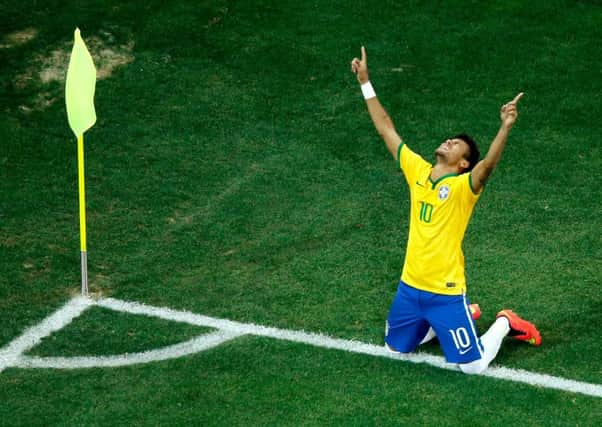Brazil’s economic slowdown a worry for investors


Brazil has been a key engine of growth in recent years as investors and pension savers have turned to emerging markets to bolster their returns.
But it’s been a rocky ride of late. Last year the Brazilian stock market posted the biggest annual loss of the world’s 20 biggest indices, as the country’s previously booming economy suffered badly from the commodities price crash.
Advertisement
Hide AdAdvertisement
Hide AdEconomic growth has slowed from around 5 per cent a year in 2007 (when Brazil was awarded the 2014 World Cup) to just 0.2 per cent in the first three months of this year.
But while the recovery will take time, experts say, many believe the outlook remains positive and expect ordinary investors to increase their exposure to Brazil as they search for big long-term returns.
David Thomson, chief investment officer at VWM Wealth in Glasgow, said: “From an investment perspective positive points for Brazilian equities include the success of recent toll road and airport auctions, strong employment figures, strengthening of the financial system and the expected end of the current tightening cycle by the central bank this year that will coincide with presidential elections.”
Investors have been lifted by a rally in the Brazilian stock market over the past few weeks. However, Jonathan Lau, investment analyst at Anderson Strathern Asset Management in Edinburgh, warns that this should be viewed in context.
“From peak to trough, the index lost 57 per cent from the start of 2011 to early March 2014 in sterling terms. Since then we have only recouped around 10 per cent of that,” he said.
That volatility means share prices are currently cheap relative to their value, said Thomson, making Brazilian equities attractive for investors wanting to benefit from the resurgence when it eventually happens.
“Earnings growth in the mid-teens for 2014 should be supportive of the Brazilian market – but it might be a game of two halves,” he said.
One possible risk is a post-World Cup slump and deterioration in public finances as the ahead of the October election.
Advertisement
Hide AdAdvertisement
Hide Ad“The central bank faces the difficult challenge of managing high inflation with slowing economic growth and the problem may get worse,” said Lau. “With elections coming up in October, policy makers are delaying necessary adjustments and reforms.”
This underlines why ordinary investors should keep their direct exposure to Brazil to a minimum. Ideally that means spreading the risk by investing in the country through global and emerging markets funds, rather than those investing only in Brazil.
“We would avoid a single country fund, as it’s just too racy for most investors,” said Thomson. “For most investors I would recommend a more diversified emerging markets fund.”
Several popular emerging markets funds, including those from First State and Aberdeen Asset Management, are currently “soft closed” to new money. Instead Thomson suggests looking at a newer option such as the Fundsmith Equity fund.
“This is a global fund but tries to tap into emerging markets growth by investing in both developing and developed economies,” said Thomson.
A number of investment trusts have significant holdings in Brazil, with varying degrees of exposure.
At one end there is the JP Morgan Brazil investment trust, run by Sophie Bosch de Hood.
She believes investors should consider buying Brazilian equities while they’re still cheap, even though growth seems unlikely to pick up over the next 12 to 18 months.
Advertisement
Hide AdAdvertisement
Hide Ad“Whilst we do not view the World Cup and Olympic Games as important catalysts in terms of market timing, they certainly have longer-term positive implications for potential growth by raising investment and improving infrastructure,” she said.
At the other end of the scale is the Aberdeen Latin American Income trust, with 36 per cent exposure to Brazil. Its manager, Fiona Manning, is less optimistic about the post-World Cup outlook.
“In the short-run, some companies will benefit from the legacy, yet the bigger challenge facing Brazil is slowing growth and stubbornly high inflation. Ironically, an early World Cup exit for the home nation could add to the overall disillusionment facing the current government,” she said.